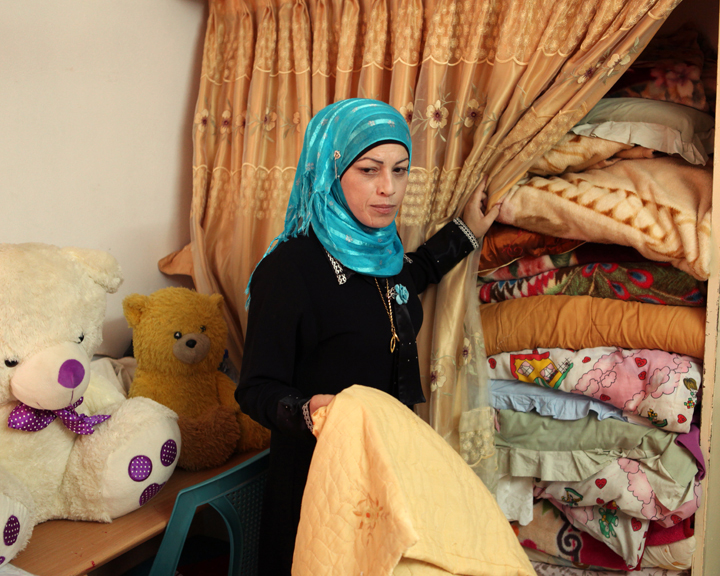

Traditions build livelihoods for Palestinian women

By Julien Vaissier and Majd Beltaji
Against a backdrop of conflict, political tensions and limited economic opportunities, a group of West Bank women are revitalizing traditional Palestinian hospitality and building livelihoods for themselves.
Through a local association backed by the MDG-Fund, 40 Palestinian homemakers are being trained to guide treks and host tourists in their homes with a series of workshops on issues such as ethics, First Aid, communications, business development, food preparation, hygiene and eco-tourism.
The aim of the programme is to boost women’s economic security and rights while promoting Palestinian cultural heritage and tourism. It builds on skills the women already possess in cooking, hospitality, herb-growing and traditional crafts to help them earn much-needed income in an area where unemployment is as high as 35%, with work options for women even more scarce.
Nala Awwad, a 40-year-old mother of three from the northern village of Awarta, had already worked in the hospitality sector, but needed to hone her skills: “The training courses helped me correct bad habits in terms of dealing with tourists, preparing meals and cleaning homes," she said. "It offered me practical knowledge and also gave me the opportunity to exchange hints and tips with other women taking the course.”
The programme works with communities in the West Bank that offer well-preserved cultural attractions to create sustainable socio-economic development. Its inclusive approach promotes activities that involve the entire village, including environmentally-friendly tours, crafts, cross-cultural exchanges, traditional activities, guided walks and visits, and home hospitality.
“Tourism acts as a driving force for the Palestinian economy, it’s crucial to invest in the potential of our cultural highlights from a Palestinian perspective,” said Raed Saadeh, Chairman of the Rozana Association for Rural Development, which is implementing the programme.
Awarta, Nala’s village, is part of the Sufi Trail tour, a package promoted by the Palestinian Authority to lure tourists off the beaten path of Jericho, Bethlehem and Ramallah. Tours take visitors to Sufi monuments, Byzantine churches, ancient mosaics, Roman garrisons and prehistoric caves.
Most of trainees are homemakers between the ages of 20 and 50, a core group that will then train women in other villages. They receive on-the-job coaching in basic home-hospitality standards, including hygiene, drinking water, preparation of food, sleeping arrangements, privacy, acceptance of cultural differences, and the code of ethics for both visitors and hosts. They also learn business management and entrepreneurship skills, as well as networking and marketing tools.
The programme is a collaboration between the Palestinian Authority Ministries and UNESCO, UN Women, UNDP and FAO. It is part of the MDG-Fund’s efforts to foster social cohesion and economic growth as a way to reduce poverty and help the Palestinians achieve the Millennium Development Goals.
It focuses particularly on empowering women like Nala, who, despite an old tradition of home hospitability in Palestinian society, had to overcome considerable social constraints to make her community accept her activities.
Nala’s determination and strength born from being widowed with a small child at the age of 20 helped her stand firm and gain recognition for her work. “I am now working as coordinator for the tourists willing to spend a night in the area, but I deeply wish to soon be able to restore my house and welcome guests,” she said.
Click here to read about the MDG-F's work in the Occupied Palestinian Territory.
Click here to read other success stories from the MDG-F's work to fight poverty and improve livelihoods around the world.